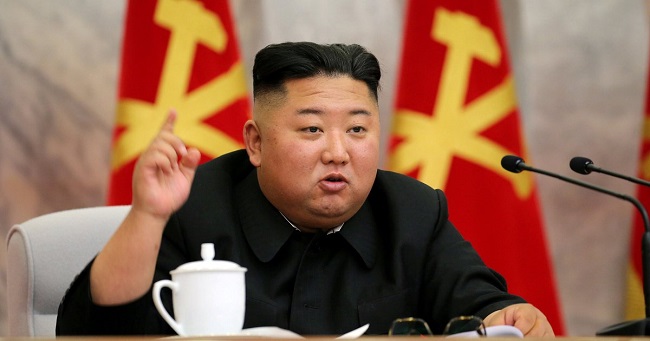On Sunday, Pyongyang issued a dire threat to the United States if Washington does not abandon its “hostile strategy” toward Pyongyang’s nuclear programme. At the same time that the Biden administration is about to launch a new policy for dealing with the reclusive Asian nation, a statement attributed to Kwon Jong Gun, chief of the Foreign Ministry’s department of U.S. affairs, has been released.

The statement said that President Biden made a “major blunder” on Wednesday when he addressed a joint session of Congress and branded the nuclear programmes of North Korea and Iran a security threat. Vice President Biden has pledged to employ “diplomacy and harsh deterrence” in response to the threats, working in tandem with partners.
Contents
The Message, Issued on an Official News Outlet, Threatened “Corresponding Measures” From North Korea.
A “thorough, rigorous, and inclusive” policy review of North Korea was finished, White House press secretary Jen Psaki said on Friday. She underlined that the previous four administrations had failed to fully denuclearize the Korean Peninsula and stated that this was the administration’s top priority. She emphasised that the administration’s strategy will not involve working for a big bargain or practising strategic patience.
In an effort to negotiate a permanent end to the North Korean nuclear threat, former President Trump made efforts to cultivate a personal relationship with Kim Jong Un. This was a drastic departure from Obama’s policy, in which he hoped that gradual diplomatic pressure on Pyongyang would eventually lead to reform.
On Sunday, Jake Sullivan, Vice President Joe Biden’s national security advisor, stated that U.S. policy is “not intended at animosity, it’s aimed at solutions” and “ultimately aimed at achieving the total denuclearization of the Korean Peninsula.”
On Friday, the White House said that government officials had finished their review of U.S. strategy toward North Korea, suggesting that Vice President Biden would be taking a different tack than his two immediate predecessors in his efforts to halt North Korea’s nuclear programme. While press secretary Jen Psaki did not elaborate on the review’s results, she did imply that the administration would seek a compromise between Donald Trump’s “grand bargain” and Barack Obama’s “strategic patience.”
Last Words
Professor at Seoul’s Ewha University, Leif-Eric Easley, said that a halt on North Korean nuclear testing and development of nuclear weapons and delivery systems would be the beginning point of negotiations if Pyongyang agreed to working-level talks. However, “if Kim rejects negotiation and instead chooses provocative tests, Washington will likely expand sanctions enforcement and military drills with allies.”


